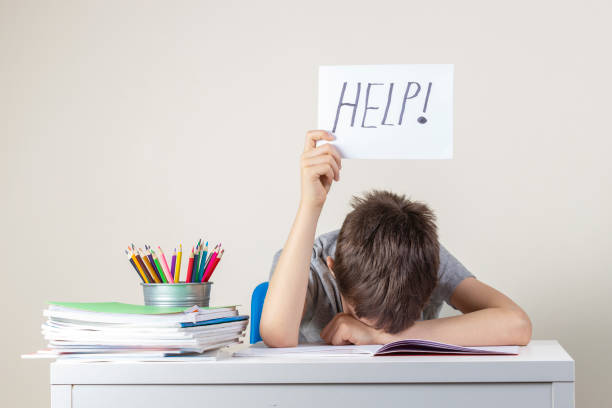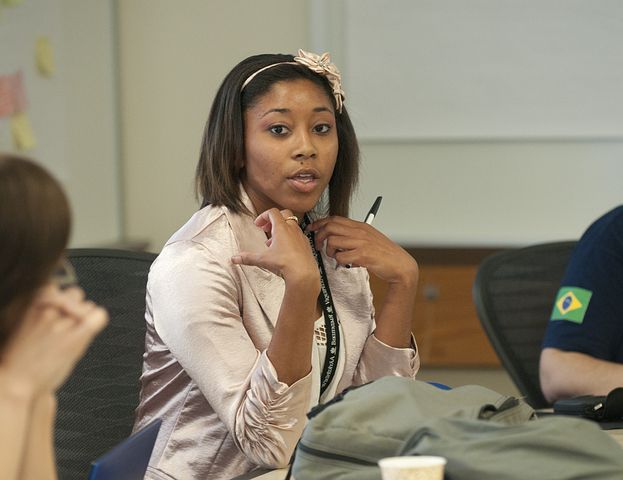Good of you that you are looking for how to become a better Educator. let me show you some of the most helpful tips out that on how to become a better educator
Did you know that there are different types of educators? Teachers, professors, lecturers, instructors, and even coaches can all be considered educators. But the roles they play and how they impact their students is what sets them apart.
With so many new ways to engage students appearing every day, it’s important for educators to stay on top of trends. Keeping your finger on the pulse of what other educators are doing and keeping an eye out for new techniques is a great way to stay ahead of the game in any field.
Here are tips to help you become a better educator in your classroom or lecture theatre.
These fundamentals may seem like common sense or things you have probably heard before – but trust us when we say that not everyone follows these principles.
>>See This: How to Save Money as a High School Student: 9 Easy Ways

Create an environment of learning before teaching.
Did you know that the first three minutes of a class have the most impact on how the rest of the hour will go? Research has shown that students are most attentive and engaged before any information has been introduced.
This means that you should make sure that your students feel comfortable, that they understand why they’re in the class and what their role in the class is, and that they have all the materials they need to succeed.
Ideally, you should do this before you even walk into class. This can be done through things like creating an outline for the class, sending it out ahead of time, creating a syllabus, and making sure that materials such as textbooks, laptops, and even bathroom breaks are available.
>> Another Suggestion: How Do You Get 100% Free Scholarships: Best Tips
Have clear learning objectives
Every class should have a clear learning objective, whether that’s for the semester or for a single day.
These should be detailed enough for students to understand what they’ll need to know at the end of their time with you, but flexible enough to allow for mistakes and unplanned opportunities.
Without a clear objective, you’re likely to fall into a trap where you’re either unprepared or have forgotten your original goal. With that said, you need to be willing to be flexible.
Most professors will have a syllabus outlining the course content, but they’re likely to be open to new ideas, especially ones that help students learn. If you find that your students are struggling with a topic or that they grasp it but don’t know how to apply it, amend your objectives and adjust your course to benefit your students.
Set and adhere to classroom rules
Every class will have its own set of rules, but every single one of those rules needs to be there for a reason. Rules can be difficult to enforce, but they’re important for two reasons.
First, they help students understand how you want them to act. This is important for maintaining a safe and respectful environment for learning.
Second, rules help you keep order in the classroom. If you need students to be quiet, having a rule about how loudly they can talk and what times they can talk is a lot easier than if you just say “be quiet”.
As you build your class roster, you should consider what rules you need to set. A strict no-phone policy or an expectation that students stay engaged throughout the class is a good idea.
You should also consider what punishments you’re willing to enforce as well. If you don’t follow through on your rules and expectations, you’ll find it harder and harder for students to follow them.
Don’t be afraid to shake things up
Every semester, you’re going to have a different set of students. This means that you need to be flexible in your approach. If a certain approach or methodology is clearly not working with a certain class, change it up and see if a new method will help them learn better.
This doesn’t mean that you need to drastically change your teaching style every time, but it’s important to be aware of the ways that you’re impacting your students and be willing to adapt accordingly.
For example, if you notice that your students are particularly disengaged and are struggling to stay focused, you might want to shake things up by trying a different style of teaching.
Maybe you try a lecture-style class versus the seminar format you normally use. Or, maybe you decide to change the day or time of your class to see if that helps.
Use visuals
Visuals can be used in a variety of ways to help students learn. From increasing the number of information students retain, to simply making your class more interesting, visuals can be incredibly useful and help you become a better educator.
You can use visuals in nearly any class, but they’re especially useful in subjects like science, history, languages, and arts. You can use visuals in a variety of ways.
Some educators like to write key terms on a whiteboard or projector screen, while others prefer to write notes on colorful post-it notes. Still, others prefer to use presentation software, such as PowerPoint or Keynote.
Whichever method works best for you, use visuals as often as possible. This can be as simple as drawing a diagram on the board to better explain a concept, or it could mean bringing in a visual aid, such as an ancient artifact, to show students where your concepts come from.
Don’t rely on technology too much
Technology is an incredibly useful educational tool and is likely to play a role in your class at some point. However, it’s important not to rely on technology too much.
Doing so can make your class unfocused, difficult to manage, and can cause students to lose focus. Where and how you choose to incorporate technology is up to you or else you will find it hard to become a better educator.
Ask for feedback from students and peers
Anyone who wishes to become a better educator must be ready to talk feedback and criticism
Although you want to be careful not to overwhelm your students with assignments and assessments, you also want to be able to get a sense of how they’re performing.
This is important because it allows you to see what they’re struggling with and what they need help with. It’s also important to ask for feedback from other educators, whether they be professors or coaches.
This allows you to get an idea of where you excel and where you need to improve. You can ask for feedback in a variety of ways. You can send out surveys periodically to get a sense of how your students feel about your class.
You can also have regular one-on-one meetings with your students to see how they’re doing and if there is anything you can do to help.
Communicate with your students outside of the classroom
There are a lot of ways to communicate with students outside of the classroom, but it’s important to do this in a way that benefits them. If you’re communicating with students on social media, it’s important that you don’t use it as a tool for teaching.
This is important because it shows your students that you’re willing to help them outside of the classroom. It also helps you see what they’re struggling with so you can better prepare your lessons. Additionally, it gives you a chance to interact with your students in a less formal way.
Conclusion On How To Become a Better Educator
If you’re a new teacher, you may be starting from scratch and don’t know how to teach. Or maybe you’ve been teaching for a long time, but want to improve your skills. Either way, hope tips can help you become a better educator.






